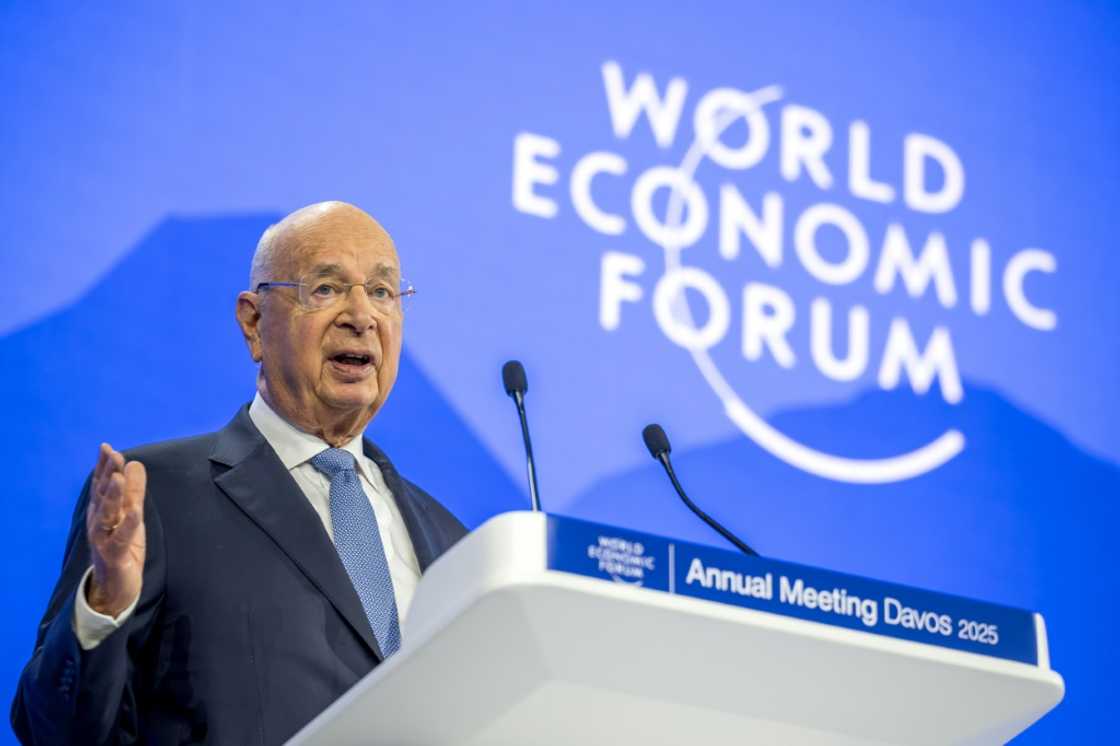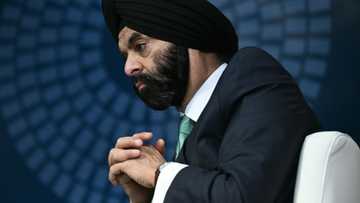Davos meet founder Klaus Schwab steps down from WEF board

Source: AFP
Don't miss out! Join Legit.ng's Sports News channel on WhatsApp now!
The World Economic Forum said on Monday that its founder Klaus Schwab has stepped down from the board, turning a page in the history of the organisation that hosts the annual meeting of wealthy, famous and influential global elites at the luxury Swiss ski resort of Davos.
Schwab informed the WEF's board that "as I enter my 88th year, I have decided to step down from the position of Chair and as a member of the Board of Trustees, with immediate effect".
Schwab stepped down as executive chairman last year, with former Norwegian foreign minister Borge Brende taking over daily management.
The WEF said Vice Chairman Peter Brabeck-Letmathe was appointed board chairman in the interim and that a search committee for replacement had been appointed.
WEF's board hailed Schwab's "outstanding achievements" in his 55 years as the leader of the organisation.
"At a time when the world is undergoing rapid transformation, the need for inclusive dialogue to navigate complexity and shape the future has never been more critical," it said in a statement.
"Building on its trusted role, the Forum will continue to bring together leaders from all sectors and regions to exchange insights and foster collaboration," it added.
Networking showcase
Schwab was born in Ravensburg, Germany, on March 30, 1938. He studied at Swiss universities and at Harvard in the United States, and holds doctorates in engineering and economics, along with more than a dozen honorary doctorates.
He was a little-known business professor at the University of Geneva when in 1971 he founded the WEF's precursor, the European Management Forum.
That first meeting reportedly drew under 500 participants. Since then the event has swelled to attract thousands of people each year.
Schwab later broadened the conclave by inviting top political and business leaders, representatives from leading non-governmental organisations, trade unions and civil society, assembling a prestigious Rolodex as he turned the gathering into a showcase for networking and exchanging ideas.
Over the years, success bred further success as many of the world's movers and shakers vied to rub shoulders in the Swiss Alps at panel discussions and apres-ski socialising.
Newer regional meetings have joined the Davos calendar, and centres exploring key issues such as supply chains, cybersecurity, climate, energy and financial and monetary systems.
The WEF maintains that it "provides a global, impartial and not-for-profit platform for meaningful connection between stakeholders to establish trust, and build initiatives for cooperation and progress".
Its mission, it says, is "improving the state of the world".
'Davos Man'
Critics have meanwhile repeatedly charged that WEF's gatherings simply create a safe space for the corporate world to lobby governments without oversight.
The event has fostered the concept of the "Davos Man", referring to the elite crowd of affluent and sometimes super-wealthy movers and shakers with global clout and reach.
Schwab and his organisation have long been the focus of conspiracy theorists.
After he called the first Davos summit following Covid-19 pandemic shutdowns as "The Great Reset", conspiracy theorists charged he was the incarnation of a globalised elite seeking to enslave and even eliminate portions of humanity.
Disinformation has spread on social media alleging that decisions have been taken during secretive Davos meetings to unleash epidemics and promote things like paedophilia and mass starvation.
Elon Musk, the multi-billionaire owner of X, even said on the platform that Schwab "wants to be emperor of Earth".
Misinformation and disinformation topped the WEF's list of short-term global risks in its latest global risk report.
PAY ATTENTION: Сheck out news that is picked exactly for YOU ➡️ find the “Recommended for you” block on the home page and enjoy!
Source: AFP





